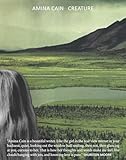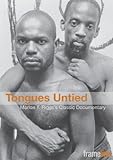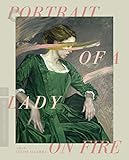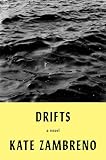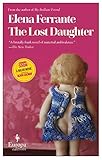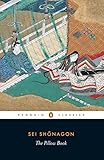I first encountered Amina Cain’s writing with her first book of short stories, I Go to Some Hollow, published by Les Figues Press. I remember impressions—her laconic precision and distinct voice, which have continued to evolve in her second book, Creature, and in her novel, Indelicacy, just published by FSG.
Cain’s writing is succinct in a way that conjures Dickinson or Duras, with her swift and deliberate delivery. Reading Indelicacy feels like inhabiting a painting. Or to play with the metaphor that writing a book is like building a house, my experience of reading Amina Cain is akin to wandering through a series of exquisite rooms where I’m surprised by a decisively placed fixture or an oblique passageway. They are rooms I’d like to return to again and again.
Indelicacy’s protagonist Vitória is a writer and a former cleaning woman, who was rescued from her job when she married. She is concerned with note-taking and observation, and with the authenticity in her life. Just as Vitória is seeking, so is this novel in asking what it means to be free, to think, to be true to oneself. This quandary of being and becoming is quite the opposite of self-help: Vitória is indelicate and self possessed. For example, she tells her former employer, who is quite cold to her, that he is “Like a tooth that hasn’t been brushed in years and is growing hair.”
Vitória’s solitude without loneliness is a quality I’ve considered quite a bit over the last month as the following conversation with Cain has evolved, and even more so now that we are living mostly isolated within our homes during a pandemic. Here in Chicago, all events are canceled and establishments closed, and I am thrust into a solitude that Vitória makes her companion. Or rather, Vitória is not lonely when she chooses her solitude. When wandering alone and when writing in her room, she becomes visible. As she notes at the end of the novel, “in the process of becoming, the soul makes room.”
The Millions: I’ll begin with a remark that seems as true—having just reread Indelicacy—as it did when I first read the novel. I experienced a kind of synesthesia when reading, each word and image so precise, each action so clear, sentences came together as a portrait, a landscape, an emotion. This novel feels as close to art as a novel can. And I mean “art” in many ways, but I’ll start with it in the sense that reading Indelicacy somehow made me feel that I’m wandering within a painting, and at times like I’m walking through rooms.
Vitória, cleaning woman and writer at heart, takes note of multiple works of art both as she cleans the museum and upon reflection, but her notes are almost like an accent within the larger picture. When reading I also started thinking of similarities and stark contrasts with Ben Lerner’s Leaving the Atocha Station, where the Adam passed days gazing at paintings in the Prado; it’s so beautifully written but also so masculine and privileged, whereas Indelicacy is gorgeous but spare, and Vitória dwells amongst paintings as she cleans.
I could say more, but for fear of saying too much, I’d rather ask you about the influence art as had on your writing, and this novel in particular. How were you thinking of approaching feminine vs. masculine approaches to making art? Were you thinking of maintenance art and labor versus emotional labor? It seems, too, privilege and gender intermingle, so I’d be curious to hear your thoughts about that as well, with regard to Indelicacy.
Amina Cain: It’s wonderful the images came through to you in that way, precise and clear. I want them to be. I like that you felt you were wandering in a painting, and sometimes through rooms. And if the novel, for you, feels close to art, then I am happy. I’ve wanted that too.
Art has had a huge influence on my writing, starting with the time I spent at the Wexner Center for the Arts in Columbus, Ohio, when I was in college, working for two years at the information desk and coat check. I had never spent so much time at an art center before, and it was formative. I remember discovering Essex Hemphill and seeing the film Tongues Untied by Marlon Riggs, a huge show on Fluxus, a concert by Diamanda Galas, a dance performance by Bill T. Jones. Though I majored in Women’s Studies, I worked at the Wexner Center at the same time that I started writing, and now the fact of this seems meaningful.
For graduate school, I went to the School of the Art Institute of Chicago, and was surrounded by art and artists. As students, we were given free admission to the Art Institute (which is one of my favorite museums of all time; in fact, it inspired the museum in Indelicacy), and for two years I went there every week. I remember seeing Bill Viola’s work for the first time at his retrospective there, which changed me as a writer. I felt then that I wanted to do in writing what Viola was doing in video and installation. I’ve felt the same looking at paintings by Amy Rathbone and Carravaggio and Bruegel, and experiencing the work of Kara Walker, Marina Abramović, Yinka Shonibare, Sarah Conaway, and Alex Branch, in the films of Laida Lertxundi and Alicia Scherson, in sound and animation by Todd Mattei, in the music of Coco Rosie, Josephine Foster, and Antony and the Johnsons.
When I was working on Indelicacy, I don’t know that I was thinking consciously of feminine versus masculine approaches to art making, but subconsciously I obviously was, and that’s my favorite kind of thinking anyway. And the novel is subsumed in “female” experience, the experiences of the narrator, as well as her friends, Dana and Antoinette, and their art making. It feels tricky, because I don’t think I can say what female experience even is, and though I’ve written about women, I don’t want to set up binaries, gender and otherwise. But I know that the book has nothing to do with male experience or art making, and in it I poke fun at men a lot, though my narrator likes art by men, as do I.
Labor (of all kinds) is an oppressive force in the book, in that it so often tries to define who a person is, circumscribes their life, and, in the worst case scenario, is abusive. And privilege is entwined in this in terms of class. My narrator is suspicious of men, but also of other women, the ones to whom she’s made invisible because she is poor. When she herself has money, she sees the same thing happen to Antoinette, who is still without it.
TM: One of the pleasures of reading Indelicacy for me is the centrality of the female friendships. However, for Vitória and Dana especially, their relationship to art—writing and dancing, respectively—is arguably the central relationship for each woman. I don’t perceive their engagement with each other or their art as a pushback against the masculine, but rather, something organic and specific to their friendships, related to the power of this attention. In this vein, Indelicacy seems to be a kindred spirit with Celine Sciamma’s Portrait of a Lady on Fire, which portrays female friendships and a love affair in an age in France that predates telephones (I believe it’s the 18th century) — this also mirrors a timeless quality in Indelicacy. In a post-screening interview, Sciamma answered questions and she stated she had wanted to make her film, in part, to depict the process of a woman making art.
Vitória is defined and thus defines herself by a need to write, and I’m so curious to hear more about your sense of her writing as a vocation, as a way to live. I know Joan Didion famously once said that she writes in order to know what she’s seeing and thinking and to know what it means. I feel like Vitória might say something similar but different—in that she writes and thinks about art in order to live. Can you talk about this in regard to Vitória’s becoming, and her becoming visible, and also her invisibility you mentioned earlier?
Vitoria also comments that reading certain books enhances her desire to write, and that she writes in part to keep them in conversation. With this in mind, what books and texts have you found a similar desire to write strengthened, and that you write to in response?
AC: Definitely. For Vitória, looking at and thinking and writing about art is not only what makes her feel alive, but what she forms her life around. I feel similarly to Didion, that I write to see what is inside my mind, but Vitória is coming to art for the first time, and to heightened experience, and writing is a way of interacting with both, which is also a way of living. It is how she becomes herself. I don’t know if it makes her more visible to others; in a way it is an invisible vocation, and she is rarely acknowledged by others in this pursuit. Certainly not by her husband, or “her” maid, Solange. It’s part of why her friendships with Antoinette and Dana are so important—they see each other as they really are. It is a wonderful thing, to be seen by someone, and to see them in return. It doesn’t always happen.
I just saw Portrait of a Lady on Fire, and that makes sense to me—that Sciamma in part wanted to show a woman making art. I like the scenes in which we’re watching Marianne draw. And there’s a particular scene in the kitchen, when the three young women are in front of the fire, with chopped vegetables on the table and flowers in a vase: it looks like a scene from a painting.
As to other books, so many! I really can’t read any of these books without wanting to write: Renee Gladman’s Ravicka series, Claire-Louise Bennett’s Pond, Kate Zambreno’s Drifts, Anna Moschovakis’s They and We Will Get into Trouble for This, Elena Ferrante’s The Lost Daughter, Tarjei Vesaas’s The Ice Palace, Bhanu Kapil’s Ban en Banlieue, Joanna Walsh’s Break.up, Tisa Bryant’s Unexplained Presence, Rachel Cusk’s Outline, Suzanne Scanlon’s Promising Young Women.
TM: I’m curious about the novel’s title, Indelicacy, which is so cunning—what what led you to it? I sense it’s related to Vitória’s perspective—she’s strong-willed and independent, gloriously and hopelessly herself; but she’s also very attuned to beauty and elegance within the museum and in the world. When dining on Christmas eve, Antoinette’s small careful bites make Vitória “want to eat like a pig.” Or there’s the way she has an outburst after enduring a self-indulgent conversation between two male authors, and she calls them both worms: “When you open your mouths you are male worms eating from a toilet.” I love this line, so angry and unexpected and quite indelicate. Is indelicacy for Vitória a source of pride? A reaction against expectation? I’d love to hear your thoughts on this, and on indelicacy in general.
AC: Yes, I would say so: indelicacy as a source of pride, and a reaction against expectation, certainly. It is how she pushes back against who and what she perceives as trying to keep her in her “place.” She likes to upset the status quo in her own way, and she has a certain bluntness when it comes to people she sees as privileged. She is judgmental, and in that way I think she might be the daughter of Sei Shōnagon, with Shōnagon’s endless lists of the things she hates in The Pillow Book.
It took me quite a while to get to the title. In general, titles aren’t easy for me. There’s a line in the novel when Vitória says of herself: “how indelicate,” and my husband said, why not Indelicacy? It made such sense. In addition to the fact that being indelicate is partly how Vitória finds her freedom, it’s a word that isn’t used as much as it once was, which seems apropos to the novel. And a word used to insult suffragettes!
TM: What does freedom mean to Vitória? Her marriage is and isn’t a form of entrapment—she relocates when she marries and is able still to write and see art, but her husband doesn’t understand her devotion to writing. Is she captive because she’s estranged from herself?
And when she ends her marriage, Vitória goes on a self-imposed exile. How is this sense of becoming distinct for her, must she be alone to sit with her thoughts? There’s such a meditative quality to this book, in her existential focus—I’m curious what becoming and being free mean to Vitória, and also how does this freedom relate to meeting one’s fate, as articulated in the epigraph, taken rom Clarice Lispector’s The Apple in the Dark: “It’s as if something that should happen is waiting for me…it’s something that owes itself to me, it looks like me, it’s almost myself. But it never gets close. You can call it fate if you want. Because I’ve tried to go out and meet it.”
AC: Freedom means everything to her, and in a way it’s what drives the whole book. I’d say it’s not so much that she needs to be alone in order to write, as much as she needs to feel that she is living authentically, close to the things that have meaning to her, that make her feel she is becoming who she was meant to be. Freedom means being herself, whatever that looks like.
For awhile it makes sense for her to be married; she finds great freedom within that institution because she has time to write, and money that allows her to go to dance classes and concerts, and buy pretty clothes and objects, all of which make her want to write. But it doesn’t last, and it isn’t enough, and to spend her life in that way feels false. She says she has no vision for it. To go away alone is an impulse she feels and then follows, to give everything to her writing, but even that isn’t perfect. She is figuring out how to have the life she wants; it may always be a work in progress. Like the Lispector epigraph, she is trying to go out and meet something in herself; she doesn’t want to block it. But what does it mean to never quite meet one’s fate, to get close, but not come right up against it? For me, it is one of the central questions of the book.
TM: Vitória encounters a gallery of unfinished works, filled with empty space—and she reflects “Why is empty space a comfort and a relief?…Empty space remains empty, always. And for a little while a small part of me can be empty too.” Does Vitória’s relief come from feeling the presence of others too strongly? Is writing a way for her to empty herself? Your prose is so beautifully pared back and illustrative—in what ways are you mindful of emptiness when writing, and what is your relationship to emptiness or the unfinished?
AC: I think writing is a way for Vitória to empty herself, and to fill herself too. Since she is becoming who she is through her relationship to looking at art, and to writing, and both sort of purge everything else, all the things that aren’t important to her fall away. Without them, she can see herself, and everything around her, more clearly. There is room; she can breathe. That is where the relief comes in. As a writer, I’m always thinking about how to empty out a text so I can see (what remains) more clearly too, with the hope that this will be true for the reader as well. As to the idea of the unfinished, I think it’s the true nature of things, that we are always “becoming,” never finished. There’s something nice in a text or an object or a person that appears polished and neat, but there is also something appealing about one that wears its changing nature on its sleeve.

